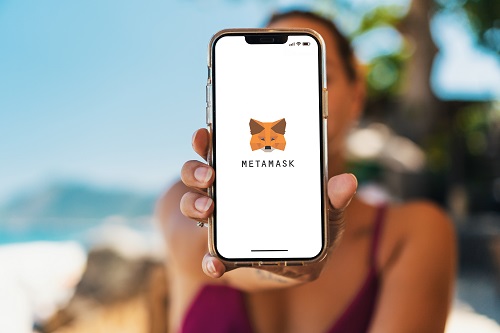
- MetaMask and MoonPay have partnered to enable more Nigerians to buy crypto directly via instant bank transfers.
- About 12.4 million Nigerians own crypto, with the country the third largest MetaMask market in the world.
- ConsenSys said in a press release that the integration will help expand crypto adoption across Africa.
Nigerians can now buy crypto with bank transfers directly from their MetaMask wallet app, Web3-focused crypto company ConsenSys has announced.
The offering follows a partnership between MetaMask and Web3 payment provider MoonPay, ConsenSys said in a press release on Tuesday.
Crypto and Web3 adoption in Africa
Africa is one of the fastest growing cryptocurrency markets, with millions of people using crypto for payments and as an investment.
The integration of seamless crypto purchases via bank transfers means buying bitcoin or other crypto in Nigeria will significantly improve, given nearly 90% of attempts to do so with credit or debit card often failed, the company noted.
According to MetaMask Senior Product Manager Lorenzo Santos, expanding MoonPay’s payment infrastructure in Nigeria is a step towards reducing challenges that come with fiat on-ramps.
“This is an essential next step in a critical market that has embraced crypto and web3 but faces serious challenges when using fiat to crypto on-ramp. We are reducing friction and bringing down barriers to keep supporting Nigerians as they onboard into web3,” he noted.
MetaMask and MoonPay’s integration also means that people looking to buy cryptocurrencies in Nigeria can do so without having to open accounts on centralized crypto exchanges.
Recent research shows that Nigeria ranks highest on the continent in terms of crypto owners, with an estimated 12.4 million Nigerians, or 5.7% of the country’s population, said to own cryptocurrencies. Meanwhile, Nigeria is the third largest MetaMask market globally in terms of mobile active users.
ConsenSys and MoonPay plan to extend the on-ramp experience to more users across Africa, with the service set for rollout in Kenya, South Africa and Botswana in April.

